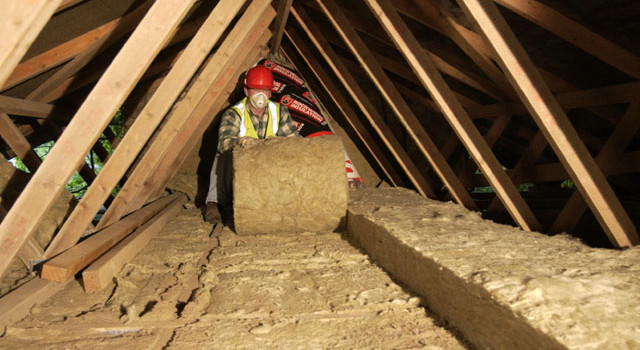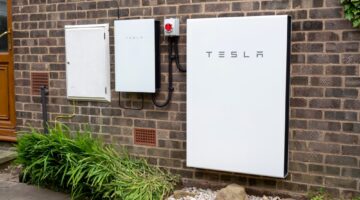
Last summer the Daily Mail published an article claiming that too much insulation installed under the could cause overheating of homes and endanger old people.
Since we are now approaching warmer weather (or what passes for warm weather in the UK), I thought it would be right to tackle this accusation and explain just why the opposite is in fact true!
How does insulation work?
During the winter, the air inside the home is warmer than the air outside. The insulation slows down the movement of energy from the warm area to the cold area, creating a thermal barrier that means your boiler doesn’t have to work as hard to keep the home warm. The thicker the insulation, and the lower the U-value, the better this thermal barrier is and so the slower the heat will escape the home.

Will insulation make nights too warm?
It is true that if you home is too warm when you go to bed, insulation will slow the release of heat from the property. This is easily negated by ensuring that you keep the home well ventilated, opening windows, for example. Anyone who doesn’t open their windows in a heatwave is asking for trouble – a bit of common sense is all that is needed!
To be honest there are about half a dozen days a year in the UK where we do find ourselves in the midst of a heatwave conditions, but there is normally about 6 months when we need to have the heating on, so on balance it is clearly better to install the insulation and take action when it is too warm rather than visa versa.
Are there any negatives to installing insulation?
Insulation is a safe, important way to make your home more comfortable, and it will help make your heating bills more affordable. There is absolutely no reason why you should not insulate your home, as long as it is done properly and appropriate measures taken with regards to safety.
Poorly installed loft insulation that does not consider your wiring and lighting can cause fires, but this is easily avoided by capping the light fittings and taking care not to cover wires. Any installer worth their salt should be able to do this. For cavity wall insulation, vents are sometimes required to prevent damp and provide sufficient ventilation for the property.
Is air tightness a problem for air quality?
It is important for your home to have good air quality – poor air quality can be hazardous to health. Having said this, some properties with extreme air tightness, like passivhaus buildings, have very good air quality. They utilise natural ventilation to improve the air, so whilst it is worth considering your air quality, it should not be a reason to avoid installing insulation.
Insulation is vital for your home
Wherever you live and whatever the type of property, insulation is absolutely vital. With spiralling energy costs it will become even more so. Make sure your home is up to scratch and don’t let the papers stop you from keeping your home warm and saving you money!
Installing Cavity Wall Insulation
Need cavity wall insulation? We have scoured the country for the best tradespeople, so that we can make sure we only recommend those we really trust.
If you would like us to find you a local insulation installer, just fill in the form below and we will be in touch shortly!












It’s not the old people it kills…it’s the young people going to visit them! My Gran’s house has loft and cavity wall insulation and it’s like a sauna! And that’s in the winter!
Hi Kathryn,
Old people do like it warm dont they! That’s not the fault of the insulation though, its because they are keeping their heating on longer than necessary, or setting their thermostat too high. Their bills would either be higher without the insulation or they would have to have the house cooler and complain how cold they are all the time! Thats much worse than being a bit warm when you visit…
They area where I live has a large number of homes constructed in the same way. Originally, there was no insulation in the roofs when the houses were built in the 1960’s. Constant encouragement to insulate roof spaces has meant that deeper and deeper levels of insulation have been fitted in peoples roofs. That’s a good thing, right? Wrong.
The original roofs were warm and dry but now the areas above the insulation are cold and wet with condensation. The cost of repairing these roofs has run into many thousands of pounds. My next door neighbour doesn’t see this and his roof is awash. Various builders have come along to repair the roof leaks which don’t exist it is all condensation.
The dim wits who promote roof insulation should realise that more insulation must be accompanied by more
roof ventilation. Obvious eh! I have 300mm of insulation in my roof, but also extensive eaves ventilation. Someone in Government ought to address this problem because it is costing some old folk very dearly.
SOUND LIKE THERE IS NO BREATHER GAPS WITHING YOUR FASCIA BOARDS TO RELEASE UNWANTED CONDENSTION
We have just had a salesman call saying,briefly that our ffibre insulation is old and there is a considerable risk that it is carcinogenic. He was trying to sell spray insulation and removing the fibre from the floor of the loft We never use the loft. My partner is worried about the risk which we were not aware of before his visit. Some informed advice needed please.
Hi G L Rice, I would be extremely surprised if the fibre wool in your home was carcinogenic. This sounds like a horrendously aggressive sales technique to be honest and I if you are happy to name and shame then we can investigate on your behalf.
That’s why the heat does not heat escape upstairs in the summer and ever since extra insulation and new boilers we have suffered from black mould.
We were far better off with back boilers, water tanks and a reasonable amount of loft insulation.
Now we are suffering with condensation and black mould
Frankly I found some of these so called facts about heat stress in older people to be rubbish – I have lived in Saudi Arabia for too many years and we never open windows winter or summer – temps here vary from -2c in winter to 45c average in summer .
We keep our house at an ambient temp of min 25c winter and summer.anything less and we find it chilling .
As for older people suffering from heat stress when the temps get high – I not my wife have every found anyone , in the regio. , who suffers from this so called condition .
Quite honestly when I have to visit the UK I suffer because of the low house / hotel / office temps having to wear a sweater and top coat just to maintain my body temps to an adequate level.
I am 70 and cannot understand how older people in the UK manage to survive at such low levels of heat!
Had my house insulated and it’s like a sauna now in summer so I have to use more electricity to run fans to keep cool.
Mine is like a sauna in summer after being insulated thus using more electricity to run fans to keep cool!
Thank you so much for your comment. Have been toying with the use of foam roof insulation and you have answered one of m worries